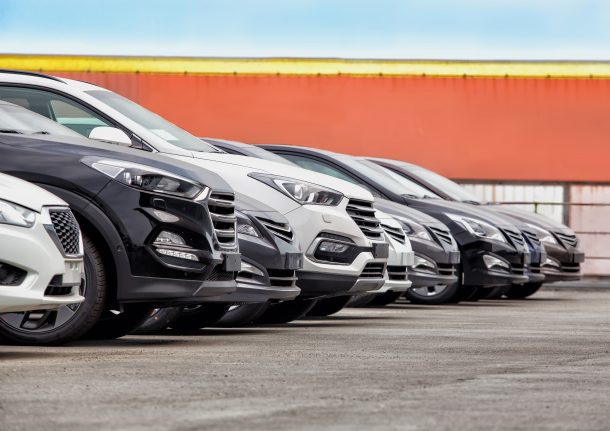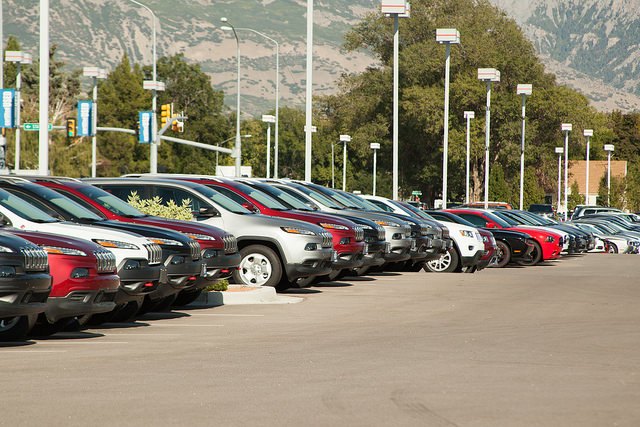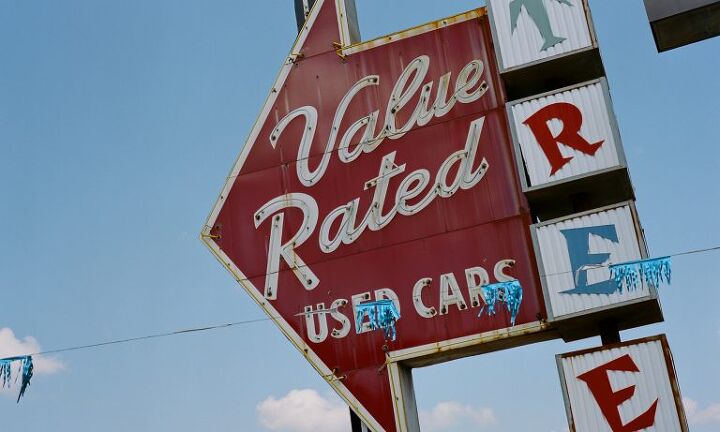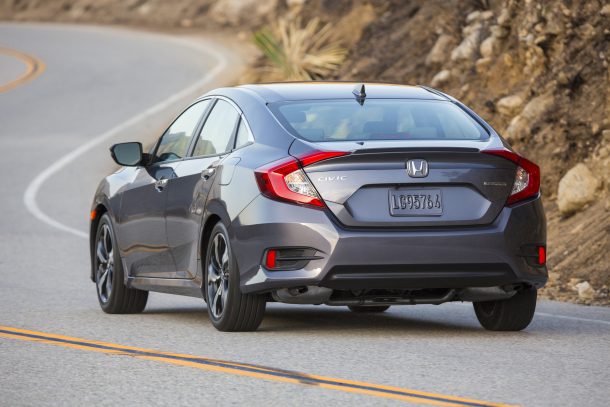#AutoLoans
The Kids Aren't Alright
For roughly the last decade, we’ve heard the motoring media bemoan Millennials as the generation that snubbed driving. Their inability to find and hold jobs that paid as well as their parents’ did at the same stages of life, combined with elevated costs of living and crippling student debt load, negatively impacted their purchasing power. Still, this generation might be just the tip of an iceberg the industry’s about to careen into.
As it turns out, Generation Z might even be less interested in cars. In addition to facing similar financial constraints as their older peers, most of them aren’t even bothering to get a driver’s license.
Chinese Auto Market Continues Its Decline; U.S. Future Also Looking Bleak
China’s auto sales declined for the ninth consecutive month in March, further proving that the market isn’t as infallible as once thought. The assumption was that, as North America surpassed peak growth and flattened out, Chinese auto sales would continue an upward trajectory. But, while China did surpass the U.S. in becoming the world’s largest auto market, it’s not living up to its billing as a golden goose.
That’s not to suggest the U.S. is about to stand triumphantly atop that mountain. Automakers are issuing profit warnings for 2019 and Moody’s Investors Service expects light vehicle sales to fall 1.2 percent this year.
“The accommodative financing environment that had helped buoy U.S. car sales is receding. Maintaining operating and financial discipline will be crucial [for 2019],” the bond credit rating business advised.
Attention, Plebs: New Cars Are Becoming Prohibitively Expensive
As new vehicle prices continue to climb, many wonder how high MSRPs can go before the public decides to take a pass — assuming they haven’t already. Sales growth is slowing, even in seemingly bulletproof markets like China. Even before this ominous backdrop unfurled, dealers were making noise about new car prices that had grown overly ambitious, claiming they couldn’t endure another period of sustained economic hardship.
Edmunds estimates that the average transaction price of a new vehicles reached $36,495 in December 2018 — a 3 percent increase compared to December of 2016 and a 13 percent increase compared to December of 2012. Taking that knowledge, Road & Track compiled a broader picture of the new-car market and where it might be going.
Spoilers ahead if you don’t want the unpleasant non-surprise ruined.
Parents Are Buying Loads of Cars for Their Adult Children
It looks as though more parents are increasingly paying for the transportation needs of their (sometimes very old) children.
Thanks largely to abandoning the important job of parenthood, a Bank of America survey a discovered small portion of adults between age 23 and 37 are now able to put away legitimate savings. However, the prevalence of student debt, low-paying jobs, and an increased cost of living has left many to continue scrimping and saving. In fact, most Millennials under 24 had less than $1,000 in their savings accounts, with nearly half having no savings at all. The former was also true for older members of the same generation. On average, it’s presumed that Millennials are earning 20 percent less than their Boomer parents at the same stage in life — despite being better educated, overall.
That’s causing future issues for the automotive industry. When Bankrate surveyed Americans to get their financial priorities on record last month, 23 percent of respondents specified that student-loan debt directly influenced their decision to delay purchasing a new car. Considering both monthly payments are frequently set to the tune of hundreds of dollars, that would make a lot sense.
Subprime Car Buyers Haven't Defaulted This Much Since '96
Grunge was on its way out the door, Pepsi aficionado Bob Dole was challenging William Jefferson Clinton for the keys to the White House, and the Ford Contour was still a relatively new sight on American roads.
That was the last time this many U.S. car owners fell way, way behind on their subprime auto loans.
Auto Loan Delinquencies Continued to Climb in the Last Quarter
The 60-day auto delinquency rate continued to climb through the third quarter of 2017. Driven primarily by “relaxed” underwriting standards from years past and increasing subprime originations, TransUnion’s senior vice president and automotive business head, Brian Landau, said two-month payment lapses rose 7 basis points to 1.4 percent.
At the same time, the average balance of outstanding auto loans increased by around 5.9 percent, resulting in the lowest year-over-year growth rate since the third quarter of 2012. The group’s Industry Insights Report cited this quarter’s serious auto loan delinquency rate as the highest observed since Q3 2009 — you know, when nobody had any money to pay their bills.
Dealers Being Targeted by Used-car Fraud Ring
A new type of sales fraud is taking advantage of lenders’ and dealerships’ automated payoff systems. Basically, criminals have begun selling high-end used vehicles that have been obtained illegally and vanish before anyone is the wiser.
Mark Maida, the CEO of AutoBuy, has said his Florida-based company was on the receiving end of the scam in 2016 and wants to warn other prospective buyers before the same thing happens to them. He doesn’t believe it was an isolated incident and claims there have been other dealers and lenders across the state that have been affected by the swindle.
Wells Fargo Under Intense Investigation Following Auto Insurance Scandal
California’s insurance regulators have launched an investigation into Wells Fargo following the bank’s confession that it forced hundreds of thousands of auto loan borrowers to pay for insurance policies they didn’t need and, in many cases, were unaware of.
There’s also a congressional investigation underway, where U.S. senators are asking the company basic questions like who was affected, how broadly, whether they get a refund, and why the hell this occurred in the first place.
Unlike JPMorgan Chase or Bank of America, Wells Fargo’s auto loan contracts allowed the lender to obtain collateral protection insurance on a customer’s behalf if they failed to buy liability coverage themselves — or if the bank assumed they hadn’t. It’s not common practice and, when it causes paying customers to default and have their vehicle repossessed, it’s not difficult to see why.
Used Car Prices Are Falling, but Don't Worry - Lenders Are Still Raking in the Dough
Earlier this year, auto lenders assured us that the stagnating car market and an unprecedented number of off-lease vehicles flooding into used vehicle lots would coalesce into the perfect storm of unprofitability. However, despite stoking the flames of terror at the beginning of the year, automotive lenders are doing just fine.
We’re sure you’re all very pleased to read car financiers are still doing so well and have likely collectively exhaled a sigh of relief. But there’s more good news. Some of these companies aren’t just surviving, they’re thriving. Several have even reported record high profits, even though used car prices continue to fall. It may be time to pop the champagne corks, pour out the bubbly, and hoist our glasses for the financial institutions we all love so dearly.
Wells Fargo to Refund $80 Million of Unnecessary Car Insurance It Forced Onto Customers
Wells Fargo says it will reimburse roughly $80 million to customers erroneously charged for auto collateral protection insurance policies. Customers will be remediated after roughly 800,000 customers were essentially forced to purchase unnecessary auto insurance, despite many of them already having active policies.
The banking and financial services firm reviewed policies started between 2012 and 2017 and identified approximately 570,000 customers who could have been negatively impacted. It plans to issue refunds and other payments as compensation, especially to those who defaulted on their auto loans as a result of being overcharged.
Lenders Snatch Back the Piggy Bank After Taking a Hit on Auto Loans
April was the fourth consecutive month to see U.S. auto sales underperform compared to 2016, leading many to speculate that the long-awaited slump has finally arrived. New car sales aren’t the only thing slipping, as used vehicle values — diminished by a flood of off-lease stock and new car incentives — is on the same downward trajectory.
At the same time, the country’s biggest auto lenders have taken a look around and do not like what they see. No bank wants to be stuck with a low-value repossessed car, so purse strings are tightening across the United States. Securing that next loan just became harder.
Of course, this is the last thing any automaker wants to hear.
'Deep Subprime' Auto Loans Are Becoming the New Normal
A third of all subprime car loans are now being categorized into the ominous-sounding “deep subprime” group. The designation has become progressively more inclusive since America clawed its way out of the recession and now accounts for 32.5 percent of all high-risk loans — up from just 5.1 percent in 2010.
While consumers have fallen behind on most subprime auto loans, the deep classification is responsible for the most serious cases of nonpayment. Delinquencies surpassing 60-day periods have tripled since 2012 and indicate little sign of stabilizing.
BMW Under Investigation Over Car Leasing Practices to Military Members
The U.S. Justice Department requested information from BMW AG’s leasing unit last year, hoping to get a handle on how it deals with delinquent payments from military personnel. The Servicemembers Civil Relief Act is intended to provide a wide range of protections for individuals required to enter active duty by suspending certain civil obligations, including outstanding credit card debt and auto leases.
However, BMW’s Financial Services said it doesn’t know how many of its leases might be affected by the Servicemembers Civil Relief Act’s terms. That’s not a great position to be in when federal law explicitly bans any action or penalty against currently deployed military personnel.
FTC Hunting for Abuse in Auto Lenders' Implementation of Kill Switches
Finance companies have begun using ignition kill switches and tracking devices, which allow them to disable and then easily locate vehicles for repossession. Some of the devices even remind borrowers when they’ve missed a payment. According to PassTime, a company that sells such devices, somewhere between 35 and 70 percent of cars financed on subprime loans have some variant of the hardware installed.
Now the the Federal Trade Commission is looking into whether these automotive finance companies are illegally harassing consumers with poor credit by imposing the hardware onto their vehicles — potentially violating their privacy while also garnering unnecessary intimidation from banks.
Millennials Like Cars (Full Stop) and Are Warming up to Leasing
It’s long past time to put the bike (myth) away.
Outside of certain urban centers, Millennials are cuckoo for cars. Jobs and families and lifestyles, you see. As more members of the youngest car buying cohort show up at dealers looking to sign on the dotted line, their method of payment is evolving, too.






























Recent Comments